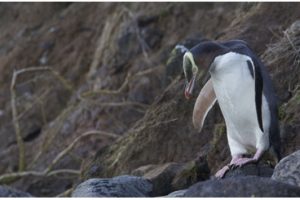Our rivers aren’t waste removal systems
Freshwater quality in New Zealand has reached crisis point.
Decades of treating our rivers as convenient waste removal systems is now coming back to haunt us.
New Zealand lakes, rivers and streams have experienced and continue to experience exponential increases in pressure from farming intensification, residential subdivision, wastewater discharges, water abstraction, erosion from bad land management and a multitude of other impacts.
Around 90% of lowland rivers are now unsafe to even swim in. My grandparents have a hard time understanding this and I dare say so will my grandchildren when the time comes.
Twenty nine freshwater fish species are now on the threatened species list – that’s around 90% of ALL native freshwater fish in New Zealand. These fish serve as miner’s canaries, telling us in no uncertain terms that we are pushing these systems beyond their limits – that the fresh water that we depend on is becoming more and more toxic.
And these changes have not been gradual – the swiftest species’ declines have happened in the last two decades.
The response to these rapid environmental declines from central government has ranged from neglect to outright denial – made obvious in their latest state of the environment report. No doubt these attitudes can be attributed to pressure from the powerful lobby groups who stand to lose a great deal if the truth gets out about how bad things really are. Local government responses have varied around the country but with no leadership from central government they are generally putting short term economic gains ahead of long term environmental health.
Rivers are not waste removal systems. What if we didn’t have rivers to dump our waste in? In Adelaide, Australia where rivers no longer flow they use modified wetlands to treat the entire cities wastewater. This process then returns compost and clean water back to the community. Why aren’t we learning from overseas? Twenty years ago Denmark had a dairying gold rush much like we are experiencing now. Ten years ago, Denmark’s freshwater ecosystems were in dire straits, just like ours are now. Thanks to swift legislative action, Denmark is now limping its way towards partial recovery – a process that we have yet to initiate.
The natural environment that we are all inescapably dependant on has already sustained too much damage. We must shift our priorities and put a long-term viable future for all ahead of short-term cash in the pockets of a few. If we stop dumping wastewater into rivers and cut back on fertilizer use so that it goes into plants and not water, we may be able to save some of those unique freshwater species and pass on a bearable future to our kids and grandkids.
I’d like to be able to look them in the eye and tell them I did my best.
This post was co-written by Mike Joy, a Senior Lecturer in Environmental Science at Massey University & Masters student Amber McEwan

